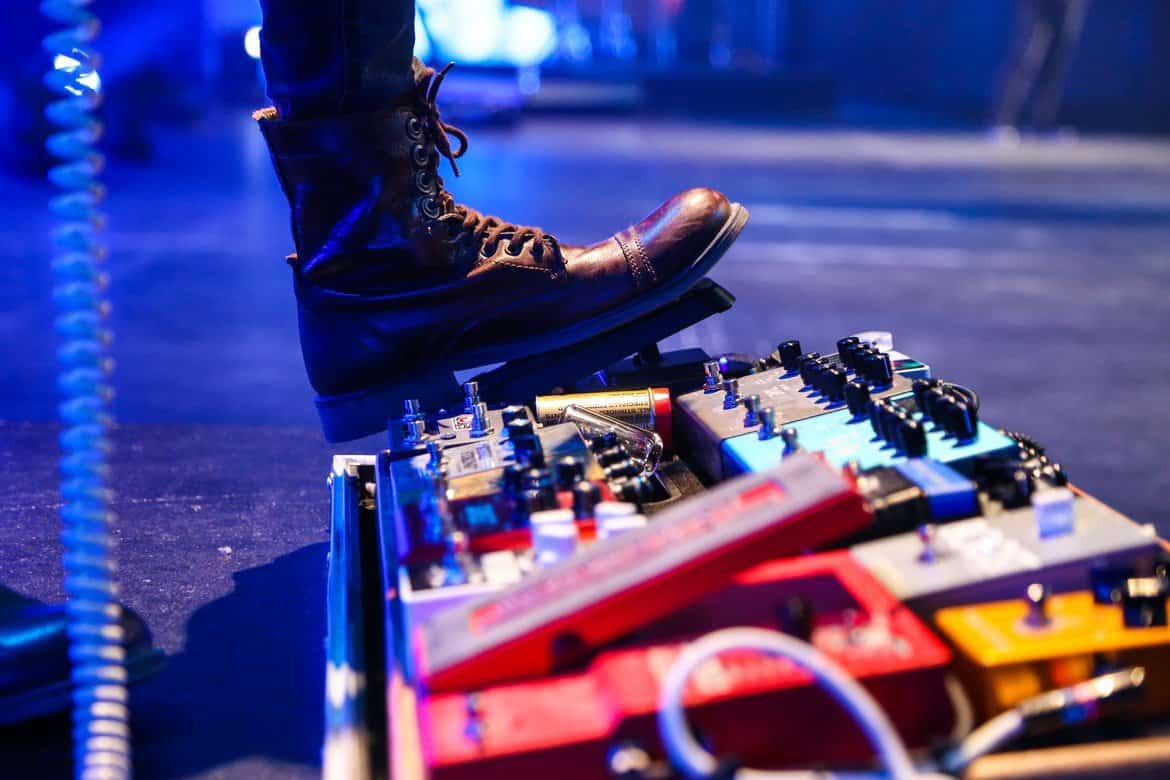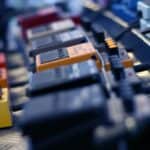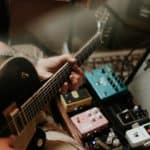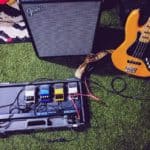When playing regularly it’s best to have everything prepared beforehand.
It’s not fun, for most of us at least, to spend 2 hours setting up a complex rig before even getting to strum our instruments.
We need immediate gratification.
Flick a switch, pick a note and get a good tone.
We don’t ask for much.
However, to accomplish this, leaving your pedalboard plugged in is necessary.
But is it ok to leave all your guitar pedals plugged in when you are not using them? Here’s the short answer:
Guitar pedals are built to last, however, leaving them plugged in will keep them drawing energy from the grid, and they will be exposed to power surges, overheating, and if not stored correctly, exposure to the elements. If your power supply has an on/off switch, it’s better to shut it down when not playing.
In this article, I will dive deeper into this topic and will tell you all there is to worry about and not to worry about leaving your pedals plugged in.
You will leave this page with a clearer idea of what is best for your gig, and what care should you be taking to improve the lifespan of your equipment.
Are you ready to get started?
Let’s go!
Should you unplug your pedal’s power cable when not using it?
Although pedals are very resilient, and probably leaving them plugged in will have no effect on them, it’s a good practice to unplug the power source when not using them.
Since most pedals are designed to be always running, and the footswitches just act as a bypass for the effect in the rig’s signal, they are always sucking up power from the grid.
This could make them vulnerable to power surges, or even overheating under extreme conditions.
If your power supply has an on/off switch it’s always recommended to turn it off when you are not playing.
An alternative could be unplugging every 9v input from each pedal, or as an easier alternative, just unplugging your power supply from the wall socket.
As a quick rule of thumb, if you place your hand over your power supply and it’s warm, it means that there’s power being delivered to your pedals.
Should you unplug your pedal’s inputs and outputs when not using them?
Most pedals are always running, and their footswitches only act as a bypass of the effect on the signal.
This is to avoid unwanted startup and shutdown noises when turned on and off.
Many pedals shut down completely when there are no audio jacks plugged into either their input or output.
They have an internal switch for that.
So, an alternative to turning off the power supply or removing their batteries could be unplugging them from the signal chain.
Although this option is not as convenient.
I couldn’t figure out a situation in which this could be a better idea than just turning off the power supply.
It’s important you know this nuance anyway.
What can happen if you don’t unplug your pedals?
Being realistic, nothing tragic is likely to happen if you don’t unplug your pedals from the power source.
However, taking good care of them, and avoiding exposure to power surges or just from running 24/7 could work wonders on prolonging their lifespan.
Also, if leaving your pedals plugged in, means leaving your pedalboard uncovered and unprotected, there will be risks associated with weather and dust buildup.
You see, electronic circuits are rather sensible to humidity, and if you add up dust into that mix, you could be in for nasty things.
The best alternative is always unplugging everything and storing your ring in a controlled and clean environment.
However, I’m a fellow human being and a guitar player, and I know that this is not 100% possible in most cases.
Try to do as much as is within your reach to take proper care of your gear and you will see that it will stay with you for a lifetime.
Why turning off the pedals isn’t enough?
Turning off pedals doesn’t cut off the supply of energy from the power brick since most of them are designed to be always running, even if the LED is off.
The proper way of reassuring a pedal is completely off is to unplug it from the energy source, and remove its battery, if there is any.
Another alternative, that works in most cases, is to just unplug any outputs and inputs there are connected to it since this shuts it down definitively.
Is turning off the power supply enough?
In most cases, turning off the power supply is enough to prevent a pedal from draining power.
Of course, if the pedal has a battery inside, once you shut down the power supply it will switch to start draining that battery.
So keeping this into consideration, the alternative described before of unplugging every audio jack from it is in most cases preferred.
However, for long term storage, it’s better to remove batteries and also unplug everything from the pedal
Conclusion
Leaving your pedals plugged in is extremely convenient and even recommended.
Don’t lose time arranging your rig every time you have to play.
Take, however, some cares about how you store equipment when you are not using it.
Just by shutting down your power supply, you will be giving your pedals the break they deserve after an arduous playing session.

Hello there, my name is Ramiro and I’ve been playing guitar for almost 20 years. I’m obsessed with everything gear-related and I thought it might be worth sharing it. From guitars, pedals, amps, and synths to studio gear and production tips, I hope you find what I post here useful, and I’ll try my best to keep it entertaining also.





